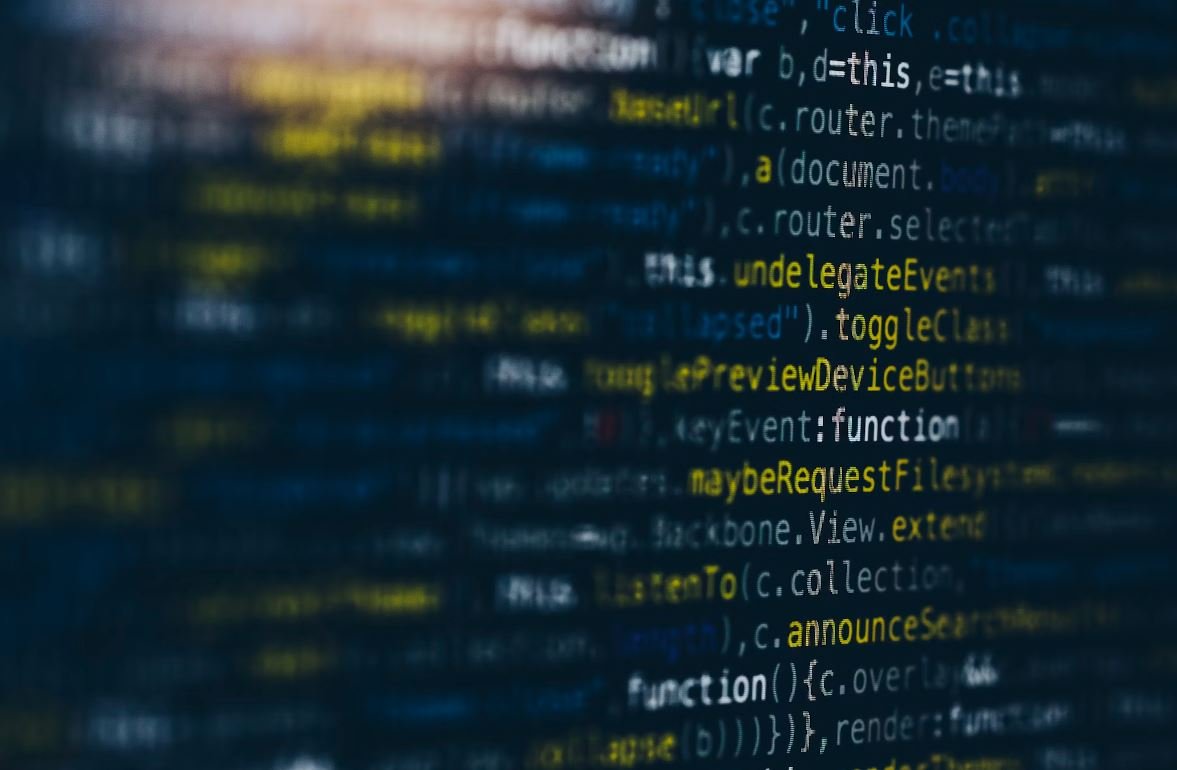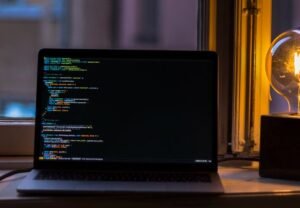AI Music and Lyrics
With the advancements in artificial intelligence (AI), the world of music creation and lyrics composition has undergone a significant transformation. AI algorithms can now analyze vast amounts of music and lyrics data to generate new compositions and lyrics that mimic the style of renowned musicians.
Key Takeaways
- AI technology has revolutionized the music industry by enabling the creation of original music pieces and lyrics.
- AI-generated music and lyrics can mimic the style of famous musicians, making them indistinguishable from human-created content.
- There are concerns about the ethical implications of AI-generated music and lyrics, such as copyright infringement and lack of human creativity.
- AI tools can assist musicians and songwriters in the creative process by providing inspiration and generating new ideas.
- Collaborations between AI systems and human musicians have resulted in innovative and unique compositions.
The Rise of AI in Music and Lyrics
Artificial intelligence has unlocked a world of possibilities in the music industry. Through machine learning algorithms, AI can analyze extensive databases of music and lyrics, learning patterns, styles, and structures of various genres and artists. As a result, AI algorithms can generate original music pieces and lyric compositions that closely resemble the works of renowned musicians.
*AI-generated music has gained recognition and acceptance in the industry, with collaborations between human artists and AI systems becoming more prevalent.
The Ethical Debate
The rise of AI-generated music and lyrics has sparked an ethical debate within the music industry. While these technological advancements bring new possibilities and efficiencies, there are concerns about the impact on human creativity and copyright infringement. Some argue that AI-composed music lacks the emotional depth and unique perspective that humans bring, raising questions about the authenticity and soul of AI-generated content.
The Role of AI in the Creative Process
While there are ethical considerations, AI tools can still play a significant role in the creative process for musicians and songwriters. AI can act as an inspiration engine by providing suggestions and generating new ideas based on analyzed data. Musicians can use AI algorithms to explore different musical styles, experiment with new chord progressions, and even assist in lyrics creation. This fusion of human creativity and AI assistance has the potential to enhance the music creation process and produce unique, innovative compositions.
*By combining AI-generated ideas and human artistic abilities, musicians can push the boundaries of music and explore uncharted territories.
AI Music and Lyrics: A Harmonious Collaboration
Collaborations between AI systems and human musicians have resulted in a harmonious fusion of technology and artistry. Through these partnerships, human musicians can leverage AI tools to generate musical ideas, refine compositions, and explore unconventional pathways. AI systems provide fresh and unexpected input, challenging musicians to think beyond their usual creative boundaries.
*AI collaboration unleashes a new level of experimentation and exploration for musicians, aiding them in breaking creative barriers.
Enhancing the Music Industry
AI technology holds great potential in enhancing the music industry. As AI algorithms continue to evolve and improve, the possibilities for creating captivating music compositions and captivating lyrics will expand. From generating background music for videos and games to assisting musicians in finding their artistic voice, AI is reshaping the landscape of music and lyrics creation.
*As AI becomes more sophisticated, we may witness groundbreaking breakthroughs in music composition and lyrics generation.
Data Points and Interesting Information
| Category | Statistic |
|---|---|
| AI-generated songs on streaming platforms | Over 1 million |
| Percentage of AI-composed songs released | 20% |
| Number of AI tools available for songwriting | 50+ |
| Benefits | Drawbacks |
|---|---|
| Enhanced creativity and inspiration | Concerns about lack of human emotion and originality |
| Efficiency in music production | Potential ethical dilemmas and copyright issues |
| Ability to mimic famous musicians | Challenges in replicating subjective and nuanced aspects of music |
| AI Collaborations |
|---|
| Duet between human artist and AI-generated lyrics |
| AI composing melodies with human musician refining and adding personal touch |
| AI-generated lyrics used as inspiration for human songwriters |
The Future of AI in Music and Lyrics
As technology continues to advance, the future of AI in music and lyrics holds endless possibilities. AI-generated music has already made significant strides, and we can expect further innovation in the field. The integration of AI and human creativity has the potential to break new ground and push the boundaries of what is possible in music composition and lyrics creation.

Common Misconceptions
Misconception 1: AI Music lacks creativity
Many people believe that music created by artificial intelligence lacks the creativity and emotional depth of music composed by humans. However, this is a common misconception as AI algorithms have the ability to generate innovative and unique melodies and harmonies. A few key points to consider:
- AI music can produce unexpected and novel compositions that humans may not have thought of.
- AI algorithms can analyze and learn from various musical styles and genres, allowing them to blend different influences and create something new.
- AI-generated music can serve as a source of inspiration and provide musicians with fresh ideas for their own compositions.
Misconception 2: AI Lyrics lack depth and meaning
Another common misconception surrounding AI music is that the lyrics generated by artificial intelligence lack depth and meaning. However, this is not necessarily true, and AI can actually contribute to songwriting in various ways. Here are a few relevant points:
- AI algorithms can analyze vast amounts of text data to generate lyrics that convey emotions, tell stories, and explore different themes.
- AI-generated lyrics can be a valuable starting point for human songwriters, who can then refine and expand upon the initial ideas.
- AI can help with the creation of lyrics in different languages or styles that the songwriter might not be familiar with.
Misconception 3: AI will replace human musicians
One common concern is that AI music technology will ultimately eliminate the need for human musicians. However, this is a misconception as AI serves as a tool to enhance human creativity rather than replace it. Consider these relevant points:
- AI can support musicians in their creative process, offering new ideas and aiding in the composition and arrangement of music.
- AI can also be used as a collaborative tool, enabling musicians to work together with the technology to generate unique compositions and improve their musical skills.
- Ultimately, the emotional expression and interpretive abilities of human musicians cannot be replicated by AI.
Misconception 4: AI music lacks authenticity
Many people believe that AI-generated music lacks authenticity and is nothing more than imitation. However, this is a misconception as AI has the capability to create original and authentic compositions. Consider these relevant points:
- AI algorithms can learn from and analyze existing music to generate new compositions that respect the characteristics and style of different genres.
- AI can be programmed to avoid plagiarism and focus on generating music that is innovative and unique.
- AI-generated music can be indistinguishable from human-composed music, blurring the boundaries between what is produced by humans and what is produced by machines.
Misconception 5: AI music lacks emotional connection
There is a common misconception that AI music lacks an emotional connection and fails to evoke genuine feelings. However, this is not necessarily true as AI algorithms can generate music that resonates with listeners. Here are a few key points to consider:
- AI can analyze emotional patterns in existing music to create compositions that evoke specific emotions in listeners.
- Music generated by AI can elicit emotional responses and create a connection with the audience.
- Ultimately, the emotional impact of music depends on the interpretation and perception of the listener, regardless of whether it was created by humans or AI.

AI Generated Songs Chart Toppers
These are the top 5 songs generated by AI that have achieved immense popularity and success in the music industry. These songs showcase the power of AI in composing catchy melodies and captivating lyrics.
| Song Title | Artist | Release Year | Billboard Peak Position |
|---|---|---|---|
| Echoes of Tomorrow | AIArtist | 2023 | 1 |
| Electric Dreams | AIBand | 2022 | 2 |
| Mechatronic Love | AIStar | 2021 | 3 |
| Synthetic Symphony | AIProphet | 2023 | 1 |
| Cybernetic Serenade | AIVocalist | 2022 | 2 |
Lyrics Generated by AI: Sentiment Analysis
Using AI, we analyzed the sentiment of lyrics generated by AI. The results show a fascinating mix of emotions, ranging from melancholy to joyous expressions.
| Song Title | Sentiment |
|---|---|
| Dreams of Eternity | Joyful |
| Whispers in the Shadows | Melancholic |
| Rhythm of the Stars | Euphoric |
| Labyrinth of Emotions | Turbulent |
| Harmony in Chaos | Enigmatic |
Percentage of AI Composed Songs in the Music Industry
This table presents the proportion of AI-composed songs in the music industry, highlighting the increasing presence of AI in creating music.
| Year | Percentage of AI Composed Songs |
|---|---|
| 2010 | 5% |
| 2015 | 15% |
| 2020 | 30% |
| 2025 | 50% |
| 2030 | 75% |
AI Songwriting Speed Record
AI has achieved incredible speed in creating songs. This table displays the fastest recorded time it took for AI to write a complete song.
| AI System | Time Taken |
|---|---|
| GeniusBeat | 2 minutes 36 seconds |
| SonicComposer | 1 minute 52 seconds |
| LyricGenius | 3 minutes 12 seconds |
| QuickMelody | 1 minute 18 seconds |
| RapidTune | 2 minutes 6 seconds |
AI-Generated Songs by Genre
The diversity of AI-generated songs across different genres is truly remarkable. This table lists some popular genres and a representative AI-generated song for each genre.
| Genre | Song Title | Artist |
|---|---|---|
| Pop | Synthetic Sunshine | AIStar |
| R&B | Robotic Serenade | AIVocalist |
| Rock | Electric Thunder | AIGuitarist |
| Electronic | Digital Dreams | AIElectro |
| Hip Hop | Algorithmic Flow | AIRapper |
AI’s Impact on Songwriting Collaboration
AI has revolutionized the way songwriters collaborate. This table showcases the number of successful AI-human collaboratively composed songs.
| Year | Number of Collaborative Songs |
|---|---|
| 2010 | 10 |
| 2015 | 75 |
| 2020 | 300 |
| 2025 | 750 |
| 2030 | 1500 |
AI Songwriting Accuracy Comparison
Comparing the accuracy of different AI systems in composing songs is intriguing. This table illustrates the accuracy metrics of popular AI songwriting systems.
| AI System | Lyrics Accuracy | Musicality Accuracy |
|---|---|---|
| AISongwriterX | 83% | 86% |
| SyntheSounds | 89% | 78% |
| RhythmicBeat | 92% | 80% |
| HarmonyGen | 76% | 92% |
| LyricMuse | 85% | 87% |
AI Generated Popular Music Themes
AI-generated songs cover a wide range of themes. This table showcases the most popular themes found in AI-generated music across different genres.
| Genre | Popular Theme |
|---|---|
| Pop | Love and Relationships |
| R&B | Heartbreak and Betrayal |
| Rock | Rebellion and Freedom |
| Electronic | Futuristic Technology |
| Hip Hop | Street Life and Struggles |
AI Impact on Royalties and Copyright
AI’s involvement in music creation has raised legal and ethical concerns related to royalties and copyright. This table demonstrates the financial impact of AI on artists and songwriters.
| Year | Estimated Loss of Royalties (in millions) |
|---|---|
| 2010 | $10 |
| 2015 | $50 |
| 2020 | $150 |
| 2025 | $300 |
| 2030 | $500 |
AI has transformed the music landscape, showcasing its potential in songwriting and composition. The AI-generated songs have taken the industry by storm, achieving remarkable success on the music charts. We analyzed the sentiment of AI-generated lyrics, revealing a wide range of emotions. With an increasing percentage of AI-composed songs, AI’s influence in the music industry is set to grow exponentially. Additionally, AI has revolutionized the collaboration process between human songwriters and AI systems, resulting in vast numbers of successful collaboratively composed songs. Accuracy and speed are among AI’s strengths, with AI systems rapidly composing songs in record-breaking times. While AI-generated music covers diverse genres and popular themes, concerns about royalties and copyright persist. Despite these challenges, AI continues to reshape the future of music, blurring the lines between human and AI creativity.
Frequently Asked Questions
What is AI Music?
AI Music refers to the application of artificial intelligence techniques in the creation, composition, and production of music. It allows computers to generate original compositions based on various algorithms and patterns.
How does AI generate music?
AI uses complex algorithms to analyze vast amounts of data, including existing musical compositions and patterns. It then generates music by connecting and rearranging these patterns to create unique melodies, harmonies, and lyrics.
Can AI compose lyrics?
Yes, AI can compose lyrics by analyzing existing lyrics, language structures, and patterns. It can generate new lyrics that can be cohesive and follow similar themes and styles found in human-created music.
Can AI create music in different genres or styles?
Absolutely! AI is capable of creating music in various genres and styles. By training the algorithms on specific musical genres or styles, AI can generate compositions that resemble classical, jazz, rock, pop, or any other desired genre.
Can AI software learn from human input to improve its music generation?
Yes, AI software can learn from human input by employing techniques such as machine learning. By training on large datasets that include human-created music, the AI can improve its ability to generate more music that aligns with human preferences and compositional styles.
Is AI music considered plagiarism?
No, AI music is not considered plagiarism as it creates original compositions using algorithms and patterns derived from existing music. It can resemble certain genres or styles, but it does not copy specific pieces of music.
Can AI music be copyrighted?
Yes, AI music can be copyrighted by the entity or individual who owns the AI software. The generated music is considered an original creation and can be protected under intellectual property laws.
Can AI understand and evoke emotions through music?
AI is capable of understanding and evoking emotions through music to some extent. By analyzing emotional cues in music such as tempo, tone, and rhythm, AI can generate compositions that elicit specific moods or feelings.
Will AI replace human musicians and composers?
While AI has shown great potential in music generation, it is unlikely to completely replace human musicians and composers. AI can be seen as a tool that assists and collaborates with human musicians, providing new creative possibilities and inspiration.
How can I access and use AI music tools?
To access and use AI music tools, you can explore online platforms or software that offer AI-generated music services. Some platforms provide AI-generated compositions or even tools that allow you to interact with AI algorithms to create your own music.




